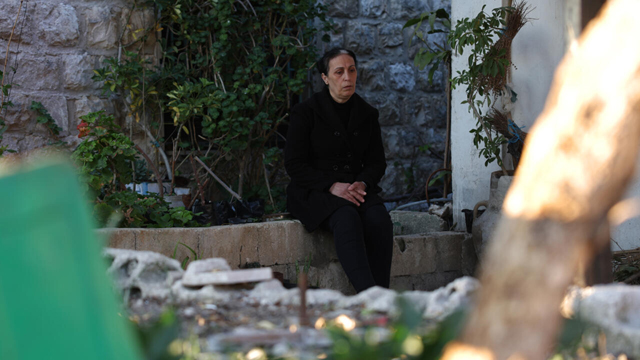News Flash
News Flash

JABLEH, Syria, Feb 5, 2025 (BSS/AFP) - At the bottom of Nisrine Ezzedine's garden, cement blocks mark the graves of her husband, son and nephew, all killed by foreign jihadists in Syria's Alawite minority heartland.
After Islamist-led rebels ousted longtime ruler Bashar al-Assad on December 8, the new authorities sought to reassure minorities in multi-ethnic multi-confessional Syria that they will be protected.
But Alawites, from a branch of Shiite Islam, have an acute fear of reprisals because of their connection to the Assad clan, which recruited from and favoured its own religious community for military and public sector positions during more than half a century of iron-fisted rule.
Ezzedine said foreign jihadists set up near the family olive groves, outside their mountain village of Ain al-Sharkia in the coastal province of Latakia, after Assad's ouster.
She said her civil servant husband Ammar, son Musa and her nephew Mohammed, both 17, were attacked there last month.
"Extremists -- masked foreigners -- riddled them with bullets," said Ezzedine, 48, her frail silhouette framed in a black coat.
The Syrian Observatory for Human Rights war monitor blamed "foreign Islamist fighters allied to Syria's new authorities" for the attack.
Some members of the Ezzedine family had been in the military, but all three were civilians.
The boys "were supposed to finish school this year", she said quietly.
Alawites account for about nine percent of Syria's population, or around 1.7 million people. The community has been repeatedly targeted since Assad's ouster.
This month, authorities said they were searching for "criminals" after an attack in an Alawite village in Hama province that the Observatory said killed 10 people, including a child and an elderly woman.
- 'Loyalists' -
The family acknowledged that the new authorities swiftly opened an investigation after the trio's killing.
"They promised to find the perpetrators, but so far we haven't seen anything," said electrical engineer Ali Ismail, a relative of Ezzedine.
Ismail lived for a decade in the northern city of Aleppo, but like many Alawites has returned to his native Latakia province, fearing indiscriminate reprisals.
"In every region, the community is under attack," he said.
People assume that being Alawite means "you are with the former regime, you committed crimes and fought alongside Bashar", he added.
The new authorities have regularly announced security sweeps and said they are facing armed "ex-regime loyalists".
The two highest-ranking former government officials arrested so far -- military official Mohammed Kanjo Hassan and Assad's cousin Atif Najib -- were apprehended in the Alawite heartland.
In Jableh, black-clad security forces in balaclavas manned a checkpoint where armed men carried out an attack last month, also throwing grenades at a police dormitory, killing two people and wounding three.
Ahmed Abdel Rahman, the new security chief in Jableh, blamed the incident on "elements from the ranks of the regime or its militias".
"They know that if they are brought to justice they will be judged for their crimes. They want to sow chaos," he told AFP.
- 'Civil peace' -
Interim president Ahmed al-Sharaa said Monday that ensuring "civil peace today is not a luxury in Syria -- it is a duty for all".
He warned of a "great catastrophe" if the country remains "captive to internal and sectarian disputes".
In a village in central Hama province, Ali al-Shahhoud was receiving condolences at a funeral ceremony for five people, mostly close relatives, killed in another village called Al-Anz.
His eye still red and his hand bandaged, the Alawite man in his 40s said armed assailants "speaking the local dialect" had rounded up more than a dozen men.
"They shot at us randomly in front of the women and children," he said, adding that Sunni Muslim neighbours took him to hospital.
The dead included his brother, 80-year-old uncle, 75-year-old father and 15-year-old son.
Shahhoud's relative Rajab al-Mohammed, who also survived, denied links to Assad's military.
"We have no weapons," he said. The attackers stole cattle and mobile phones to "conceal the sectarian aspect" of the murders, he charged.
Former municipal official Ali al-Mohammed was at the funeral.
He said people had fled around a dozen villages in the central region, fearing random reprisals.
Since December 8, the Observatory has registered more than 240 extrajudicial killings and "revenge acts" mostly targeting Alawites and former security personnel, many in Homs and Hama provinces.
Homs and Hama are "multi-confessional provinces", Mohammed said as winter sun spilled into the funeral hall.
"All these problems aim to put an end to coexistence -- that's the message we're getting."